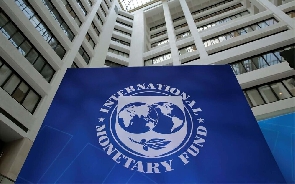The IMF has advised African countries to consider how their debt restructuring programmes could affect the domestic banking sector.
At the 2023 Oxford Center for the Study of African Economies Conference at St. Catherine's College, Oxford, Abebe Aemro Selassie, Director of the African Department of the IMF, said: "For cases where debt is unsustainable, it goes without saying that it needs to be restructured."
In such cases, he said, "the burden of making repayments should not fall unduly on debtor countries".
"But this is easier said than done", he admitted, saying: "Debt restructurings have always been difficult, and even more so now in the context of a more diversified creditor base and more complex structure of public debt.
"Take domestic debt, which now accounts for about half of all public debt in sub-Saharan Africa.
"In cases where public debt is unsustainable, and this exposure needs to be included in the restructuring perimeter, careful consideration needs to be given to the effects on the domestic banking sector, how quickly market access can be regained etc.", he advised.
"And with respect to external creditors, countries, of course, have even less sway over the pace at which restructuring can happen, as clearly shown by the ongoing challenges with the Common Framework".
This, he noted, "is even more frustrating in unsustainable cases where the official creditors' inability to agree on a needed debt treatment prevents the IMF from providing timely support to countries during periods of acute distress".
Ghana restructured its domestic debt a few weeks ago and is currently in talks with China and the Paris Club to restructure the gold-producing West African country's external debt of about $5.3 billion, of which $1.7 billion is owed to China alone.
Read Abebe Aemro Selassie's full remarks below:
Prospects remains undiminished. As difficult as conditions are at the moment, I strongly believe that the vast majority of countries have reached a threshold where even in the face of the many challenges they face, they will get by; indeed, go on to prosper. Rather, what is frustrating is that with a modicum of increased support, the region could be helped to reach its full potential sooner and the global economy could be much better for it.
While countries have a clear role to play, what is required of the international community going forward are the following:
Much higher volumes of countercyclical flows, particularly from International Financial Institutions (IFIs), to neutralize the highly procyclical nature of private capital flows. At the Fund, for example, right now our ability to sustain our recent high levels of support is increasingly being constrained by the limited availability of concessional resources. A challenge that we are working very hard to address via pledges from our wealthier members.
A more agile and effective sovereign debt resolution framework. The G20's Common Framework is an important innovation, and we would be in a much worse place without it. At the same time, it has not been able to provide the required financing assurances and debt relief in a timely manner. This needs to change, and quickly. Again, as an institution, we are working relentlessly to improve this process and, with the World Bank and the G20, launched a new Global Sovereign Debt Roundtable in February to bring together key stakeholders involved in sovereign debt restructuring to address the current shortcomings in debt restructurings.
Finally, more support from advanced countries is needed. As one British mandarin once put it to me, the "authorizing environment" for this is not exactly favorable. Indeed, we are seeing significant cuts in such flows, and a significant share of what is not being cut is instead being directed elsewhere. Two quick points on this. First, as the preceding discussion has, I hope, convinced you, this cut in aid, particularly its diversion away from budgets, is having the very significant effect of proportionally reducing development spending. Second, if it is perhaps too much to ask for higher aid, then one change that could at least be made is to ensure that there is much more progressivity in aid flows to the poorest and more fragile countries.
Again, absent making sure that we devote the resources needed now to build human capital and help integrate Africa into the global economy, it is not just slower growth and development progress in the region that is in store, but also a much weaker and less resilient global economy.
Thank you so much for your attention.
Business News of Friday, 24 March 2023
Source: classfmonline.com

















